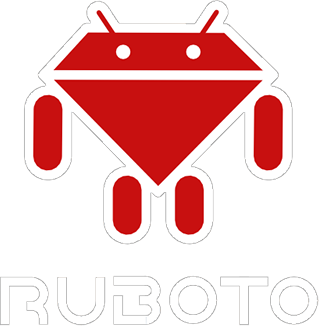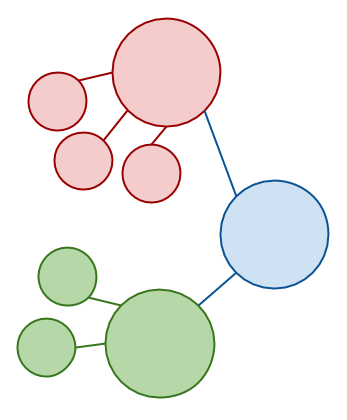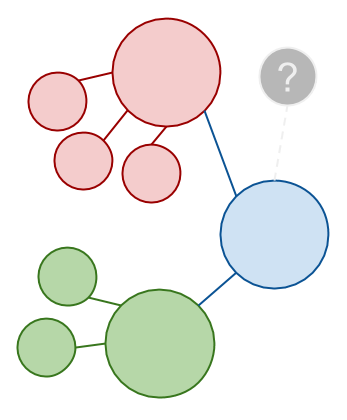Ruby
Why It's Here and Where It's Going

Speaker notes added in italics



"Don't underestimate the human factor."
Ruby is from Japan. Ruby's creator, Yukihiro Matsumoto or "Matz", stresses that code should prioritize human needs, not computers' needs.













Ruby is an outlier if you consider language origin. Is it possible that its origin accounts for some of the things that make it special?

Try Ruby
Matz' focus on easily-accessible, human-friendly programming spilled into the Ruby community. tryruby.org is a great example of this. It pays homage to _why, an early Ruby personality.
Rails
DHH & Stuff


Ruby on Rails made Ruby famous. Rails was warmly received and remains loved for its dedication to making development fast & easy, for providing smart conventions and for enabling endless customization and specialization.
Ruby Today Now





These days, there are lots of ways to run Ruby code.
Why do we love it so?
"Principle of Least Surprise"
name = "Star Wars"
name << ": The Force Awakens"
# => "Star Wars: The Force Awakens"
crew = ["Han Solo", "Chewbacca"]
crew << "Luke Skywalker" << "Ben Kenobi"
# => ["Han Solo", "Chewbacca", "Luke Skywalker", "Ben Kenobi"](1..10)
# => 1 .. 10
('a'..'z')
# => "a" .. "z"
started_at = Time.new("2011-01-01")
ended_at = Time.new("2011-12-31")
the_year_2011 = (started_at..ended_at)
# => 2011-01-01 00:00:00 -0800..2011-01-01 00:00:00 -0800In Ruby, all objects behave basically the same way. This means that once you learn a few Ruby APIs, you know what to expect from new ones.
class Aquarium
attr_accessor :fishes
def initialize(fishes=[])
self.fishes = fishes
end
endBuild Your Dreams
# initialize with an array of fishes
tank = Aquarium.new(["Goldie", "Fishy"])
# add fishes
tank << "Comet"
# combine Aquariums
bowl = Aquarium.new(["Alpha"])
koi_pond = tank + bowl
# find fishes by name
koi_pond["Goldie"] def +(other_aquarium)
# join fishes together
new_fish = self.fishes +
other_aquarium.fishes
Aquarium.new(new_fish)
end
def <<(fish)
# add a fish to the collection,
# return self
self.fishes << fish
self
end
def [](fish)
# lookup a fish by name
self.fishes.find { |f| f == fish }
endWith Ruby, just imagine how your objects should behave. You can always implement it. Since operators are aliases for methods, your custom objects feel like built-ins.
Check Yourself

const_defined?(:Fish) # => true
fish_class = const_get(:Fish)
Fish.ancestors
# => [Fish, Animal, Vertebrate, Object,
# Kernel, BasicObject]Fish.method_defined?(:swim)
Fish.instance_method(:swim) # => BoundMethodshiny = Fish.new(name: "Shiny")
shiny.class # => #<class: Fish>
shiny.instance_variable_get("@name")
# => "Shiny"shiny.is_a?(Fish) # => true
shiny.is_a?(Animal) # => true
shiny.respond_to?(:swim!) # => true
shiny.respond_to?(:walk!) # => false Your app is made of values and code stored in the VM's memory. Ruby gives you lots of ways to inspect it.
Wreck Yourself
const_defined?(:Fish) # => true
class Fish
def saute
# add oil & heat
end
end
COOKING_METHODS = [:broil, :bake]
class Fish
COOKING_METHODS.each do |cook|
define_method(cook) do |heat, time|
# heat for time, etc
end
end
end
if !const_defined(:Squid)
squid_class = Class.new(Fish)
squid_class.name # => nil
Object.const_set(:Squid, squid_class)
end


Besides inspecting objects in memory, you can modify them and create new ones.
Catch Yourself
class Fish
end

def method_missing(name, *args, &block)
# last chance, what do you want to do!?
super
end def self.const_missing(name)
# I'm sure we've got an extra
# `Fish::Head` around here somewhere...
super
endyummy = Tuna.new(name: nil)
yummy.dolphin_safe?
# => I really can't afford another NoMethodErrorif diner.high_class? || diner.russian?
meal = Sturgeon::Caviar
end
# => do we have any of that?When Ruby looks for some part of your program, but it isn't there, it's not too late. Ruby gives you hooks to handle those cases.
mruby

Ruby is wonderful because you have total control to express yourself in your code. You own it; not vice-versa.
Let's talk about another implementation of Ruby: mruby. In fact, this is Matz's current project.
Ruby everywhere


Matz's dream is to lower the barrier of entry to the "internet of things" by using Ruby to connect people to all kinds of computers.
What makes mruby special is that it's great for connecting to a) other applications or b) small computers.
Hello, mruby
I added this slide in place of the live demo, shoulda been there!
mruby's Hello world consists of:
- include mruby.h (the mruby runtime)
- include mruby/compile.h (the mruby parser)
- instantiate the VM (mrb_state)
- use it to execute a string of code
See it on github
mruby Bytecode
I added this slide in place of the live demo, shoulda been there!
You don't have to ship your code with the mruby parser. You can precompile Ruby code to RiteVM instructions.
Then, your C application can execute the bytecode instructions with the mruby VM.
See it on github
Ruby, meet hardware
I added this slide in place of the live demo, shoulda been there!
In your C application, you can prepare the mruby VM with values & code that are normally off-limits for Ruby.
How about the timeless example of illuminating LEDs?
I don't have any LEDs, but let's imagine with `FakeLED`.
Ruby, meet Hardware
I added this slide in place of the live demo, shoulda been there!
You can write a Ruby script to control your LEDs
First, wrap the hardware with some mruby-compatible functions
Then, in your application, bind the hardware to the mruby VM by defining classes, methods and constants (github)
Lastly, evaluate your Ruby code with your VM instance (github)
mruby in the Wild



It looks like mruby has some support from Japanese companies.
Ex: forum.mruby.org, Toshiba, CloudWalk.io (not Japanese)
mruby recap
- Lightweight Ruby built for embedding in C
- RiteVM + bytecode
- Many ways to run:
- from string
- from bytecode
- from external files
- Interaction between C & Ruby
- create Ruby objects & methods in C
- call Ruby functions from C
- Share code via mrb-gems
- No documentation <3
Thanks for Listening
Robert Mosolgo, @rmosolgo
https://github.com/rmosolgo/mruby-examples
Ruby
By Robert Mosolgo
Ruby
Ruby overview + mruby demo, Full Stack North County (http://fullstacktalks.com/http://fullstacktalks.com/ 13 Nov 2014
- 2,121



